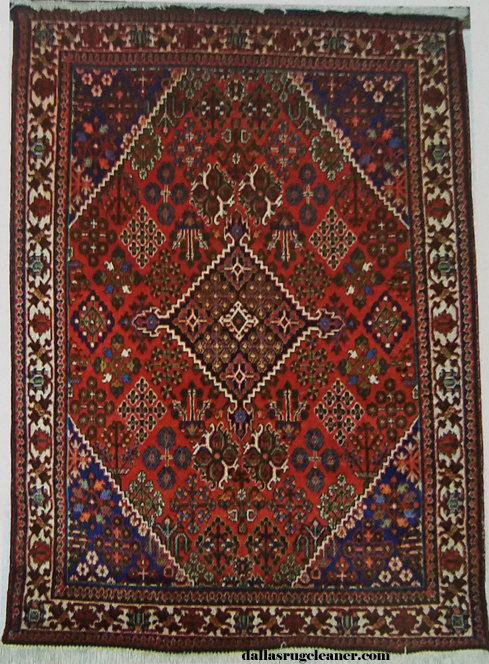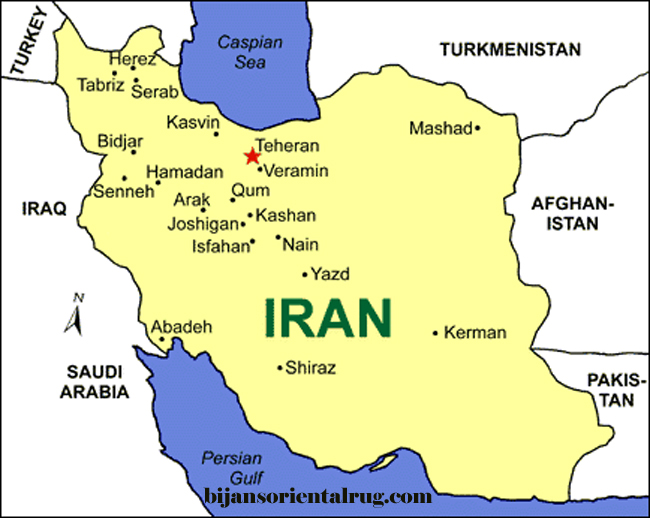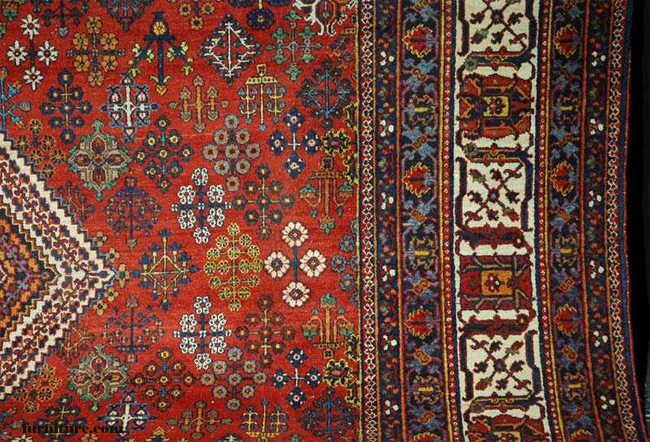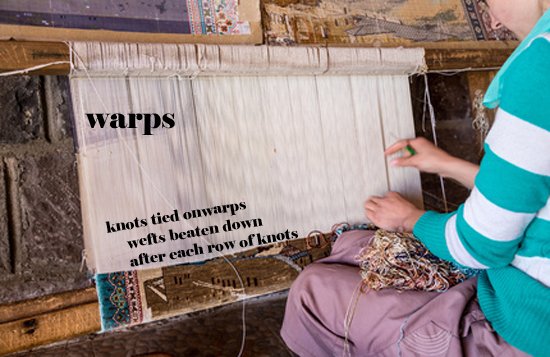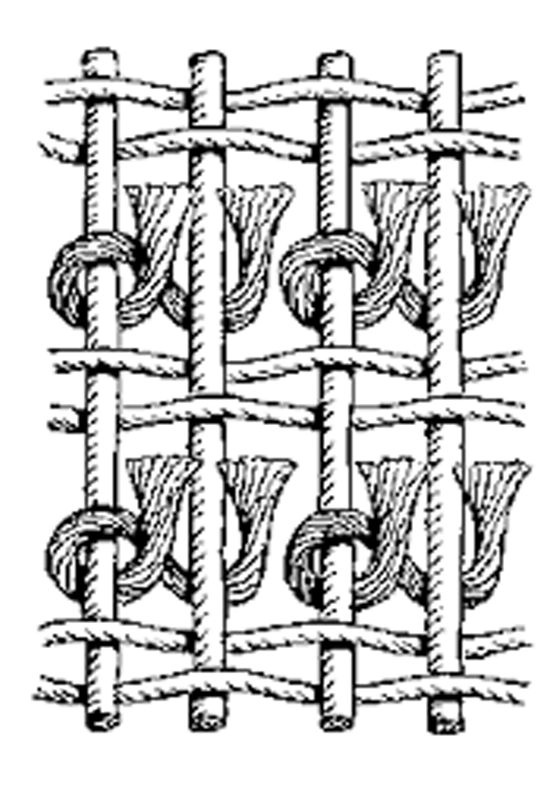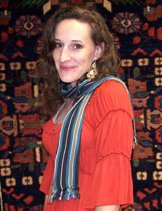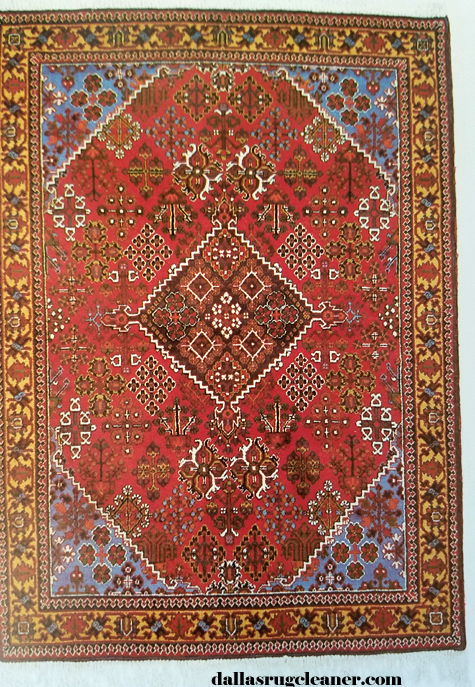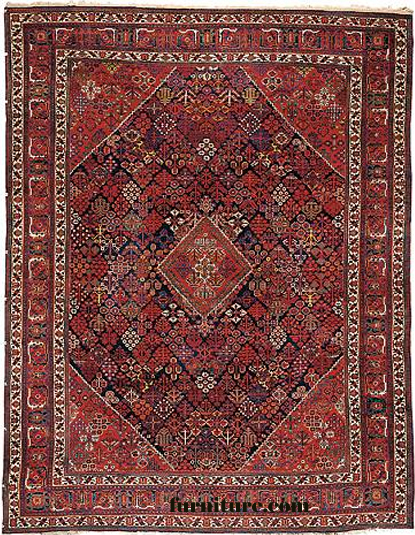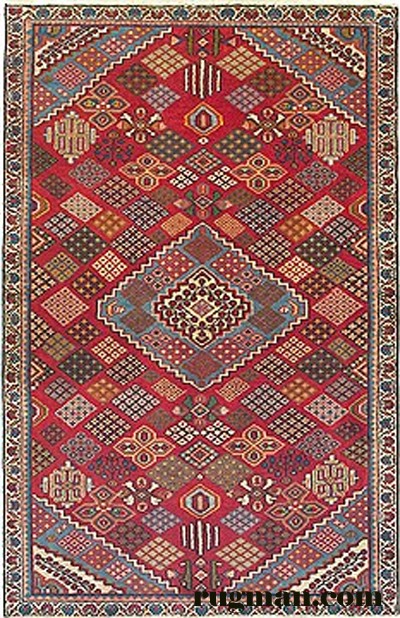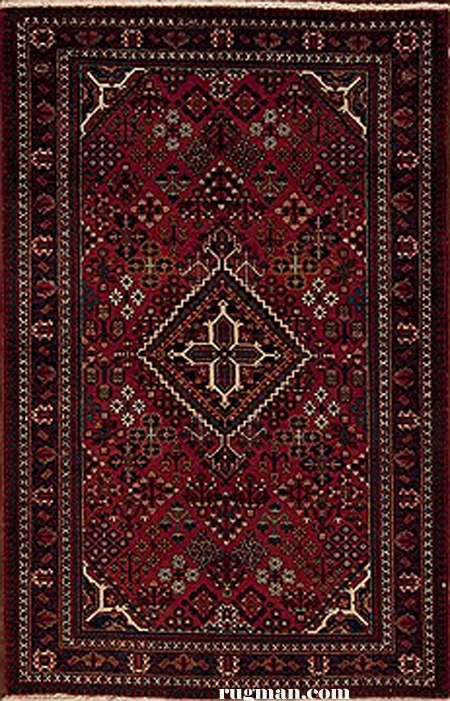JOSHAGAN ORIENTAL RUGS
WEAVING HISTORY
Joshagan oriental rugs have been woven continuously for centuries by the people of the Persian village of Joshagan (also spelled Joshigan, Josheghan, Joshegan-e-Qali, Djaushegen).
It is believed that as early as the 17th century, during the golden years of rug weaving of the Safavid era, Joshagan rugs were woven for export.
LOCATION
Joshagan is located in north central Iran, just north of the city of Isfahan. Its location on an early important trading road leading South from Kashan to Isfahan, made it a principal market center.
When Tehran became the capital of Iran in 1788, the road from Tehran to Isfahan became more important than the road from Kashan to Isfahan. The road from Tehran bypasses Joshagan and runs through nearby Mehmeh (Meimeh, Mei Mei, Maymeh). Mehmeh then became the dominant trading center in the region, superseding Joshagan.
DESIGN & COLORS of
JOSHAGAN ORIENTAL RUGS
The design of Joshagan rugs has remained relatively unchanged for centuries and is fairly easy to identify. The design fits well into our study of Oriental Rugs by Design.
The most common pattern of the rug is a diamond-shaped central medallion on a deep red field filled with geometric shaped floral motifs that can resemble snowflakes or pebbles. Four-petal flowers are often found within the medallion.
The red background is usually accompanied by contrasting dark blue borders and corners. Stylized weeping willows can sometimes be found on those borders and corners.
Older pieces may have a navy blue or rust-colored field. Other common colors are ivory and green.
The
design of the rugs produced by the weavers of Joshagan are more similar
to the rugs from the Hamadan region rather than the close by city of
Isfahan. The nearby village of Mehmeh uses a design very similar to the
Joshagan and these are sometimes known as Mehmeh Joshagans. Mehmeh rugs usually have a much finer weave.
FOUNDATION
The foundation (warps-up and down cords and wefts-side to side cords) of the Joshagans are cotton. The rugs are double-wefted with 2 shoots of cotton which are often pale blue or grey.
KNOT
The pile is tied with the asymmetrical Persian knot and is cut to a low to medium pile. The number of knots per square inch is usually high in the Joshagan rugs.
END FINISHES
The ends are finished with a cotton kilim (a flat area of varying size woven at the end of the rug before the fringe is finished) and plain fringe.
SIDE FINISHES
The sides are finished with a single cord overcast in wool.
SIZES
Joshagan rugs can be found in all sizes but 10x7 and 12x8 are the most common.
COPIES OF JOSHAGAN RUG DESIGN
A similar though expanded design to the Joshagan is produced in some Romanian rugs but with softer nontraditional colors, as well as earth tones.
Occasionally copies of Joshagan oriental rugs can be found in India.
"The Cleanest Clean You've Ever Seen."
by
ABC Oriental Rug & Carpet Cleaning Co.
130 Cecil Malone Drive Ithaca, NY 14850
607-272-1566
Oriental and Area Rug Washing at ABC Oriental Rug
Rugs on the wash floor are gently scrubbed before thorough rinsing.
Gentle scrubbing continues. Note the wringer in the background-the next step in the washing process after rinsing.
After thorough rinsing, the rug is sent slowly and carefully through the wringer to take out as much of the water as possible before being hung on racks in the drying room.
Rugs are hung on a rack in the temperature controlled drying room until completely dry.
